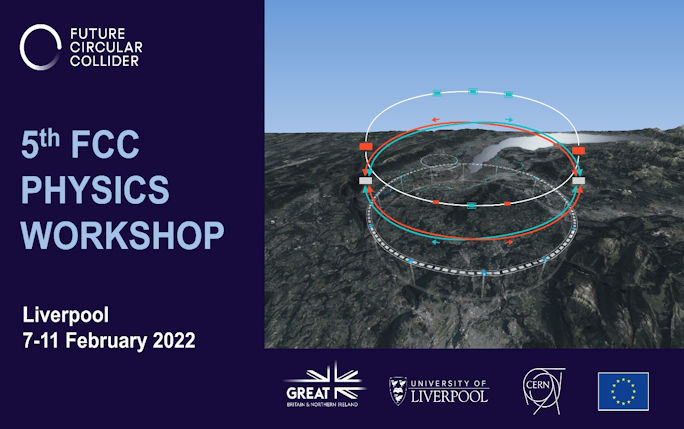FCC Workshop organised by the University of Liverpool

For the first time since the launch of the Future Circular Collider (FCC) feasibility study, the FCC physics community gathered online from 7 to 11 February to reflect the status and achievements of FCC Physics, Experiments, and Detectors studies and initiate new activities.
The fifth FCC Physics Workshop was organised by CI partner the University of Liverpool together with CERN. Gathering over 600 participants, it was the largest FCC Physics Workshop to date.
The meeting offered an opportunity to sharpen the FCC's physics case. A future electron-positron circular collider (FCC-ee) will deliver record-breaking luminosities to study all standard model particles and their interactions with the Higgs boson – with unprecedented precisions. In addition, speakers referred to the physics studies opened by the direct kinematic reach of a proton collider (FCC-hh) hosted in the same tunnel. The staged approach provides the most efficient and pragmatic way towards the energy frontier while the scientific synergies between FCC-ee and FCC-hh give access to a diverse scientific programme that would contribute in answering some of the biggest questions in modern physics.
The workshop covered detector requirements and progress on the design of new analysis tools and methods for FCC-ee. The goal, as part of the feasibility study, is to provide a coherent set of solutions to obtain the maximum benefit from the improved statistics, variety of channels, and sensitivity to new physics of the new collider.
The meeting also allowed establishing constructive collaboration with linear collider teams and aligning the R&D plans with other roadmaps and activities at European and global level. In that direction, discussions during the meeting will inform the preparation of an FCC paper that will be submitted in the Snowmass process in the US.
More information about the fifth FCC Physics Workshop here: https://indico.cern.ch/event/1066234/